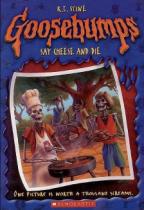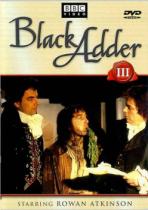Members
Stats
Users Online Users: 0 Users: 0 Guests: 19 Guests: 19 Total: 19 Total: 19 |
Snow Falling on Cedars, a review by JonSnow Falling on Cedars 4/5 Though I've yet to record any of it here, I've been having a bit of an unwatched marathon. DVDs I bought cheap thinking I'd watch them when the mood hit and then it never bloomin' hit! Tonight I made the effort to catch up with this one. At its heart, it's a simple courtroom drama set in a fishing community in the years just after WWII. A fisherman has been found dead, tangled in his nets. A Japanese fisherman is accused of his murder and so begins the usual round of prosecution versus defence, but with a backdrop of prejudice and mistrust against the Japanese community so soon, relatively speaking, after the attacks on Pearl Harbour. The Japanese have their own problems with trust. Despite loyalty to the US during the war, they were still shipped off to camps. They are afraid of an unfair trial. Meanwhile Ishmael, a reporter (Ethan Hawke) is quietly observing the proceedings. The film is so much more than a simple drama though. It is more concerned with emotion and history. All the main players are dealing with their past, letting it form their own prejudices. The most important history is between Ethan Hawke's reporter and the wife of the accused because he's letting it influence a very important decision. They were lovers, split up by the war. Now he has found important evidence, but instead of handing it over, he broods, unable to truly let go of her. His father, a newspaper man outspoken in his defence of the Japanese, had recently died. Ishmael was never so convinced of his fathers unwavering support of the Japanese and is perhaps fearful to continue it now, so tries to stay neutral. Usually I really enjoy courtroom stories, but I think what put me off for so long was some of the reviews. Good or bad conclusions, they spoke of it being based on a novel and how the film had matched its ponderous, poetic nature. Somehow I was never in the mood to be bored! I wasn't of course. Far from it, in fact I was utterly enthralled. This is a truly beautiful film from the very opening shots, the sort where you think you could press pause at any moment, frame it and hang it on your wall. Of course, if you did that you'd be unable to appreciate the use of sound. It's as brilliant as it is ambitious, with scenes and dialogue overlapping in a manner that often contradicts what you see and highlights some emotional clash. There's a lot of emotional clash. Just as with the sound, flashbacks pepper the narrative, drawing parallels between past and present. And these flashbacks are never highlighted; they drift in and out as if daydreams. They somehow feel more genuine that way, though it does demand your attention keeping track! The detail in some scenes is astonishing (a memory of a love scene), reminding me of a Terence Malick film, while in others, there is hardly any (fractured, incoherent dialogue when narrating a letter). Another sign of a genuinely intelligent and adult film. In retrospect, perhaps some criticism is valid. Empire suggested that it is too ponderous, and that Ishmael moodily indulges a long time getting where he's going. But that's the point I think. That like many of us, a seemingly simple decision can be clouded by very human emotions and sometimes those clouds are thick. Now if it was all thoughtful poetry, beautiful or not, the real trial would have been in watching it! Brilliantly, the trial on screen is a fantastic focal point though. The Judge (James Cromwell) and the barristers (Max Von Sydow for defence) have some great banter. Like a real court case, their scenes bring all the threads into sharp context, stripping away the emotion to leave bare facts. I can't recommend this enough. Ambitious, adult, beautiful and enigmatic. Plus the story of Japanese-Americans was an interesting one I hadn't considered before. Truly, there are two sides to every story, and that could be this films tagline. I hate to commit, but in some ways, this would appeal most to those of us who enjoyed Lost In Translation. I hasten to add though that that comment shouldn't put off people who didn't. This film lacks Translations commitment to evoking a constant mood. Instead, it builds up a mood, but then breaks it to, as I said before, demonstrate some sort of paradox. Blimey. I went on a bit there! Sorry, but films like this deserve rattling on about. They are not always perfect, but the mere fact they try to bend rules and conventions demands support. So there.  (From Snow Falling on Cedars on January 17th, 2008) Goosebumps: Say Cheese and Die, a review by addicted2dvd Goosebumps: Say Cheese and Die Say Cheese And Die Greg Banks, and his friends, Doug and Shari, decide to sneak into the old Coffman house. While exploring, Greg stumbles onto a hidden cabinet with a rather large and odd camera inside and decides to take a picture. Greg soon begins to realize that this camera takes pictures of the future and causes bad things to happen... Say Cheese And Die...Again Greg's English teacher, Mr. Saur, is a real grouch. He just gave Greg a big fat "F" on his oral report about the camera he found last summer. He didn't believe the stories about the pictures it took and the evil things that happened. Now Greg has dug up the camera and bad things are happening, really bad things...just like the first time. Brittany's Thoughts: I thought that this was an okay couple of episodes. What happened in the episodes were awesome, but I had trouble with the believability of it. One thing I also didn't like was how all of the horrible stuff happened and all that happened to the teacher was that he lost his hair. I think it was stupid to dig it up for an A on a school assignment (in the second one) anyway. My Thoughts: These episodes were ok... but far from great. putting aside the believability that Brittany talked about... the continuation from one episode to the second was almost non-existent... at least with the answer to the problem.. as they didn't even try to save themselves the way it worked in the first episode... you would think that would have been the first thing they would try. (From Father/Daughter Marathon Review: R.L. Stein on March 23rd, 2008) Tom's TV Pilots marathon, a review by Tom
Plot: England 1768-1815. A golden age of wealth, power and discovery though not for Edmund Blackadder Esq. In a situation that can rightly be seen as something of a slump in the fortunes of the previously aristocratic Blackadder family, Edmund is now butler and gentleman's gentleman to the "mini-brained" Prince Regent. Black Adder 3.01 Dish and Dishonesty Writer: Richard Curtis (Writer), Ben Elton (Writer) Director: Mandie Fletcher Cast: Rowan Atkinson (Edmund Blackadder, butler to the Prince), Tony Robinson (Baldrick, a dogsbody), Hugh Laurie (The Prince Regent, their master), Helen Atkinson-Wood (Mrs. Miggins, a coffee shoppekeeper), Vincent Hanna (Mr. Vincent Hanna, his own great great g), Denis Lill (Sir Talbot Buxomly, a member of Parliame), Simon Osborne (Pitt the Younger, the Prime Minister), Geoff McGivern (Ivor Biggun, a candidate), Dominic Martelli (Pitt the even Younger, a tiny whig) The third series is also great. Though not judging by the first episode. That one was just okay. Hugh Laurie is great as the Prince Regent. Rating:  (From Tom's TV Pilots marathon on March 29th, 2011) |



 May 19, 2024, 02:25:41 AM
May 19, 2024, 02:25:41 AM
